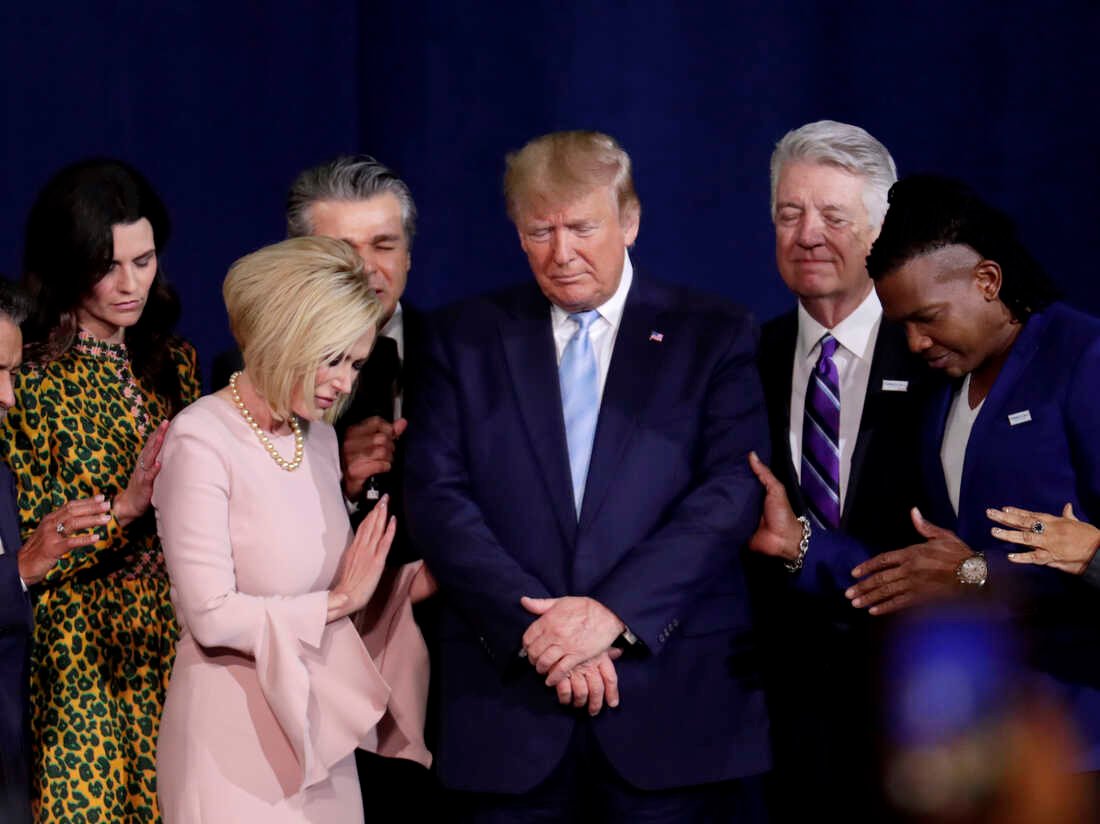Donald Trump’s reputation is a mosaic of controversies, from business failures to allegations of adultery and sexual misconduct, culminating in his tumultuous presidency. Yet, amidst this tapestry of scandals, one remarkable facet stands out: the unwavering support he commands from white evangelical Christian voters.
The question looms: How does Trump maintain such steadfast loyalty among a demographic typically associated with moral conservatism and religious values?
To unravel this enigma, insights were sought from individuals intimately acquainted with the evangelical mindset. Troy Miller, president of the National Religious Broadcasters association, offers a perspective grounded in personal interactions and observations. Despite acknowledging Trump’s incongruities with evangelical principles, Miller underscores the resonance Trump has with many in this community. Trump’s ability to connect with voters on a personal level, despite his checkered past, engenders a sense of understanding and affinity among evangelical constituents.
Trump, adept at leveraging this sentiment, capitalizes on his perceived understanding of evangelical concerns. His recent social media post, portraying himself in messianic terms, exemplifies his strategic embrace of the evangelical narrative. While such displays may raise eyebrows among religious purists, they seemingly hold little sway over evangelical voters, evidenced by Trump’s resounding victory in Iowa’s evangelical demographic.
The absence of accountability from Trump’s evangelical base further fortifies his position. Brad Atkins, a Baptist preacher from Spartanburg County, exemplifies this sentiment, citing Trump’s policy initiatives and judicial appointments as grounds for continued support. Trump’s perceived alignment with evangelical interests outweighs any moral qualms raised by his detractors.
However, Trump’s relationship with evangelical voters transcends mere policy alignment; it operates on a contractual basis, as elucidated by John Fea, a history professor at Messiah University. This transactional dynamic hinges on reciprocal benefits: Trump delivers on policy objectives, while evangelical supporters afford him leeway regarding personal indiscretions. It’s a symbiotic alliance driven by mutual self-interest rather than moral scrutiny.
Notably, Trump’s appeal extends beyond evangelical circles, with some evangelicals, like Fea, expressing disillusionment and opting for alternative candidates. However, Trump’s adept navigation of wedge issues, such as abortion, ensures his enduring relevance within evangelical discourse.
Erick Erickson’s evolution from Trump critic to supporter underscores the pragmatism prevailing among evangelicals. Despite initial reservations regarding Trump’s character, evangelical voters prioritized policy outcomes over moral scruples, as evidenced by their overwhelming support in successive elections.
In the complex interplay of religion and politics, Trump emerges as a shrewd operator, capitalizing on evangelical anxieties and policy preferences to cement his political stronghold. As long as Trump continues to deliver on his promises and project an image of strength and efficacy, evangelical support remains a steadfast fixture in his political calculus.
In conclusion, Trump’s enduring appeal among evangelical voters reflects a nuanced interplay of shared values, strategic messaging, and pragmatic considerations. While questions of character may linger, they pale in comparison to the allure of political expediency and policy outcomes. As the adage goes, in the realm of religion and politics, a contract is a contract, and Trump shows no signs of wavering in his commitment to securing evangelical support.
